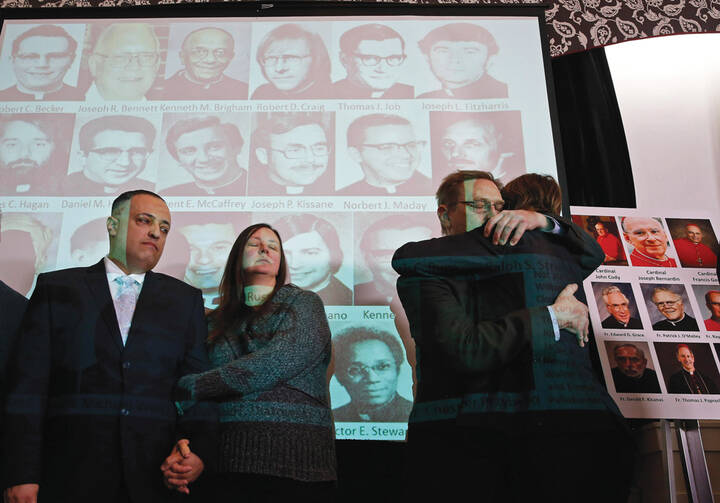Bureaucratic overreach, a fundamental misunderstanding of the interplay of canon law with secular authority, a headline-grabbing “food fight”: these are just some of the criticisms of a recent broadside from a United Nations committee reviewing the Vatican’s global record on the protection of children. A crucial error in a scathing report from the U.N. Committee on the Rights of the Child was its presumption that the Holy See maintains something akin to a secular government’s control over its “territory,” which according to this interpretation is not confined to the borders of Vatican City but encompasses the worldwide Catholic Church itself.
Revisiting several well-publicized instances of clerical or religious wrongdoing—some dating back decades—the committee, which tracks compliance with the U.N.’s Convention on the Rights of the Child, charged that the Vatican, a signatory state, was not doing enough to prevent clerical sexual abuse of children. It even suggested that, for the good of children, the Catholic Church should change its teaching on abortion and contraception. Among a laundry list of sometimes oddly explicit recommendations, the committee requested that the Vatican prohibit interpretations of Scripture that might be used to justify corporal punishment and urged a review of textbooks in Catholic schools to rid them of gender stereotyping.
An international law specialist and a keen observer of the proceedings in Europe called the outcome of the sometimes contentious process a missed opportunity for the United Nations to put real pressure on the Holy See regarding its policies on the protection of children. “They got their hits in for the news cycle,” the attorney said, “but they didn’t make progress along the lines of the [convention itself], and the Holy See wasn’t put in a position where it could respond in a constructive way” to criticism. That crucial opening would have set the foundation for future dialogue and progress. Now the tension engendered by the report could impede the diplomatic engagement necessary to maintain momentum toward the child protection and rights goals of the convention.
The attorney, who wished to remain anonymous, said because the U.N. report drifted so far afield of the parameters of the convention itself, it will be easy for Vatican authorities to dismiss its findings if they wish to do so. “They thought that they were going to shame the Holy See before the entire world,” the attorney told America. And in so doing, “they overstepped their mandate.”
Had the committee instead focused on pushing for compliance with international norms on child protection within the Holy See’s actual territorial confines—through which thousands of children pass each day—the attorney argued it could have had a meaningful impact on the global church. Imagine, for example, if officials at the Holy See adopted the same kinds of training and protection policies now commonly enforced in dioceses, seminaries and schools across the United States? That powerful example of attentiveness to child safety and preventative interventions against child abuse would be difficult for bishops’ conferences around the world to ignore.
The Vatican will follow the procedures foreseen by the treaty “with openness to criticisms that are justified, but it will do so with courage and determination, without timidity,” said Federico Lombardi, S.J., the Vatican spokesperson, on Feb. 7, two days after the U.N. report made global headlines. Committee members went “beyond their competence and interfered in the doctrinal and moral positions of the Catholic Church,” Father Lombardi said, adding that its suggestions reveal an “ideological vision of sexuality.”
The Vatican, Father Lombardi said, has repeatedly explained in detail to the committee and to other U.N. agencies that it has direct legal jurisdiction only over those who live and work in the small territory of Vatican City State. While it has canonical and spiritual jurisdiction over Catholics around the world, priests and bishops are subject to the laws of their own nations.
“Is this impossible to understand, or do they not want to understand it,” he asked. “In both cases, one has a right to be surprised.”








